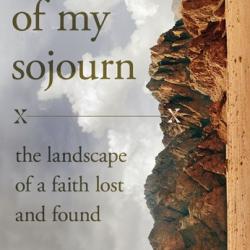
The analogy between the Buddhist doctrine of karma and the Pauline Christian doctrine of the link between deeds and doers is this:
According to the seed that is sworn; so is the fruit ye reap therefrom. Doer of good will gather good; doer of evil, evil reaps. Sworn is the seed, and though shall taste. The fruit thereof.
You will reap whatever you sowed. If you sow to your own flesh, you will reap corruption from the flesh. But if you sow to the Spirit, you will reap eternal life from the Spirit (Gal. 6:7).
But when we engage a Buddhist doctrine of karma with the Christian notion of theodicy, we find more divergences. In Buddhism, there is no doctrine of theodicy for two main reasons. First, Buddhism has no notion of a monotheistic God whose goodness must be justified against the problem of evil. Second, the doctrine of karma provides the cause for human suffering, even infants. Engaging in dialogue with Buddhists concerning the doctrine of karma and theodicy is not an easy task in part because theodicy (theo "God" and dice "justice")—the question of why evil exists if God is powerful and why the innocents are suffering if God is good challenges not only Buddhist doctrine of karma but also the Christian faith. This apologetic paper will argue that the problem of evil is not contradictory to the existence of God.
In making my case, I will offer four theological responses to the doctrines of karma and of theodicy. The first one is a monotheistic response to the Buddhist doctrine of karma and anatta. The second one is a free-will response to karma and sin. The third one is a soteriological response to karma and the problem of evil. The fourth one is the ethical and eschatological response to the doctrines of karma and of theodicy.
1. Monotheistic Response to the Origin of Evil and Karma
Buddhism has no doctrine of monotheistic God the creator. Buddhists believe if God exists, there is no evil, but since evil exists, there is no God. They consider time and space to be beginningless and endless in samsara. Since time and space is beginningless and endless, there is no personal creator at the beginning and no judge at the end. This is the reason why the Buddha did not accept the Hindu notion of Brahman as the sole basis underlying the universe and the accompanying notion atman or atta as the eternal self. Rather Buddha taught the doctrine of anatta (at-atman or no self). Anatta is the root of everything to be originated and the goal to be realized. Everything is dependent co-origination. The same is true of good and evil, which co-arises and will co-cease.
There is no first cause. Karma is the only impersonal judge from the origin to the end of good and evil. Karma judges everyone's deeds and thoughts from the beginning to the end. I must respond to this Buddhist doctrine. The Buddhist notion of karma as the primary and ultimate judge is contradictory to a Christian doctrine of God as the creator and judge of the universe. Christians believe that the monotheistic God is the only personal Creator who creates everything out of nothing (Gen. 1). This monotheistic God is the first cause who is immanent in creation and is transcendent in His power. In contrast to the Buddhist doctrine of anatta (no-self), God declares His self-existence to Moses by saying "I AM WHO I AM" (Ex. 3:14). Second, I want to respond to the Buddhist doctrine of the dualistic dependent co-origination of good and evil. In contrast to this, Christians believe the primordial goodness of the world and the original righteousness of creature Adam. The idea that the world is initially good is justified with what God said, "it was very good," (Gen. 1:31) when He saw everything He created. The term "good," God used to evaluate His creation is the goodness prior to Adam's corruption of the world. Yet, Christian notion of Adam's sin as the cause for the problem of evil and death is analogous to Buddhist doctrine of karmas as the source for suffering.
2. Human Freewill Response to Karma and Sin
Buddhist doctrine of karma challenges Christian doctrine of omniscient God on the one hand and enhances a Christian doctrine of human freewill on the other. Buddhists often challenges Christians with this question: if there is all-knowing and omniscient God the creator and ruler, then why is He not responsible for controlling the sin of His creature Adam? Other than freewill defense, there is no easy answer to this important question. Whether or not God foreknows the sin or fall of Adam is out of our discussion in part because such claim is abstract. Rather my aim is to make sense of human freewill more practically. I argue that God created humankinds—Adam and Eve with freewill. God may command Adam and Eve to obey Him, but He does not coerce them.




